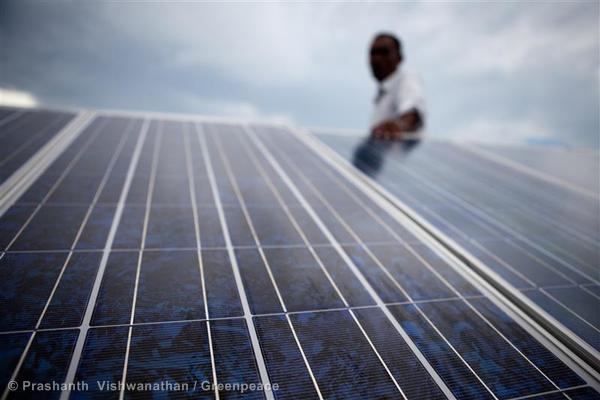Capital aside, 22 states have failed to achieve renewable purchase obligation mandated by SERC, reveals Greenpeace report
The government’s policy of giving a boost to renewable energy has received a setback in the national capital, as a latest report suggests Delhi is a “laggard” in utilising renewable purchase obligation (RPO).
Besides Delhi, a total of 22 states have failed to implement RPO, which is “an obligation mandated by the state electricity regulatory commission (SERC) under the Act, to purchase minimum level of renewable energy out of the total consumption in the area of a distribution licensee.”
The details emerge from a report released by Greenpeace India titled ‘Moving Ahead with Renewables: Leaders & Laggards’.
The good news, though is six states — Meghalaya, Nagaland, Uttarakhand, Himachal Pradesh, Tamil Nadu and Karnataka — have demonstrated a lead in implementing the policy, according to the report.
“Despite a good potential for solar (energy), the national capital fared amongst the worst with not even one per cent achievement,” it found.
It noted: “Regulators failed to penalise or implement the directives of RPO in Delhi and in other key states like Maharashtra and Punjab, which fell short by about 50 per cent.” It said there was a loss of more than 25 percent electricity — or 18,300 million units — due to non-implementation of the RPO provision properly.
Delhi, Maharashtra, Punjab, Andhra Pradesh and Madhya Pradesh were the worst performing states in terms of implementing RPO targets, it was found.
“RPO mechanism could have been a tool to bridge the demand-supply gap in the energy sector across the country. But the toothless mechanism, combined with unambitious targets, has failed to give any impetus to renewable (energy) in India,” said Abhishek Pratap, senior energy campaigner for Greenpeace India and lead author of the report.
As the national capital, Delhi should have been a trendsetter but, instead, has “set the trend in the reverse direction”, he said.
The overall cumulative targets set by various state regulators is 5.44 per cent, whereas the national target is set at 7 percent, resulting in a deficit of 1.56 percent, which translates into nearly 14,268 million units of electricity from renewable energy projects.
“India’s international position on energy equity needs to be translated within the country as well. Rich states need to take more responsibility on clean energy development to create space for poor states,” Pratap added.
Read the report
